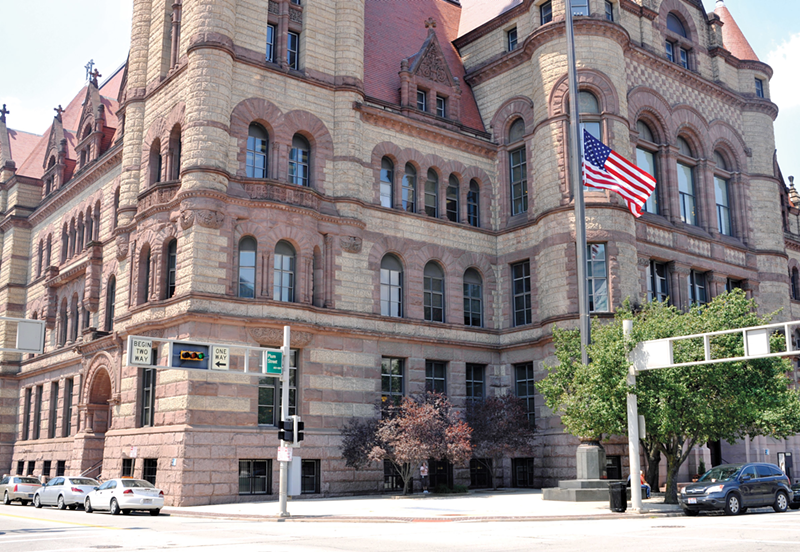Good morning all. Here’s the news today.
Cincinnati City Council yesterday moved along at least one charter amendment proposal, putting it on the November ballot for voters to approve. That amendment would clarify when council can meet in executive session, away from the staring eyes of the public. Ohio state law allows some use of executive session for municipal governments, and the charter amendment proposed would specify limited times when council could get together for discussions behind closed doors. Those include discussions about certain sensitive property transactions, ongoing court cases, security measures for city facilities and personnel, certain information about development deals and some discussions about the city manager’s job.
The Charter Review Committee, a group charged with suggesting changes to the city’s governing document, had suggested four other amendments. At least one of those, a measure that would clarify how long the mayor has to refer legislation to council committees, seems to have died on the vine. While it sounds arcane, the issue has big, contentious implications. The mayor’s ability to hold on to legislation amounts to a so-called “pocket veto,” critics on council claim, or a way for the mayor to effectively kill council actions he doesn’t like. Mayor Mark Mallory used this power more than 200 times during his time as mayor. Cranley is opposed to the amendment, but he also claims that the pocket veto isn’t a real thing. Some council members agree, saying that the mayor clinging on to legislation could be challenged in court. One thing is clear, however: an amendment won’t clear up the issue. Advocates for the measure fell one short of the six council votes needed to put the amendment on the November ballot.
Other amendments, including one that would give council the power to fire the city manager, are hanging in there and might be considered next week, just short of the deadline to get the proposals on the November ballot.
• In other council news, a new tax levy for parks improvement will also go on the upcoming ballot. The property tax boost of 1 mill would mean that owners of a $100,000 home would pay about $35 extra a year. Council’s vote is somewhat symbolic. Organizers of a petition drive collected enough signatures throughout the city to put the initiative up before voters. If voters approve the measure, it would raise about $5 million a year. About $1.25 million of that would go toward park maintenance. The rest would go to new projects decided by the mayor and the park board. Parks funding has been cut in half in the last decade and a half, Cranley has noted.
• A long-held tradition for Cincinnati parents is over, at least for now. Folks in the Cincinnati Public School district looking to get their kids into magnets like the Fairview German Language School will no longer be able to sign up on a first-come, first-served basis, but instead will be entered into a lottery system. That will eliminate the yearly camp-outs that parents undertake as they wait to sign their children up for those schools. CPS has cited fairness and safety concerns for ending the first-come, first-served practice. Last year’s camp out lasted 16 days. Enrollment for CPS’ high-demand magnet schools has several tiers. First are priority students who already have a sibling attending the school. Then a number of seats are set aside for students whose nearby schools are among the district’s lowest performers, an effort to offer those students a chance at a better education. The rest have been up for grabs. Until now, seat availability was through the first-come, first-served approach. Now, a computer will randomly choose who gets to enroll.
• City officials and business leaders yesterday launched Union Hall, a facility in Over-the-Rhine that is touted as a one stop shop for entrepreneurs looking for help in launching start-ups. The site on Vine Street houses startup incubator The Brandery, Cintrifuse and CincyTech, all of which are aimed at helping get startups off the ground. The historic building, which has been a brewery, night club and speakeasy, will house about 100 employees.
• A former Cincinnati Police captain is appearing in an ad advocating for legalized marijuana. Retired Capt. Howard Rahtz, a member of a marijuana policy task force led by Hamilton County Prosecutor Joe Deters, is seen in the commercials supporting ResponsibleOhio’s legalization effort arguing that the state’s marijuana laws don’t work and that it’s time to reform them. Rahtz touts his time as a Cincinnati police officer, saying he learned a great deal about drug addiction during his service. Opponents of the ResponsibleOhio measure, which would legalize marijuana for anyone over the age of 21, but restrict commercial growth to 10 sites across the state, say they’ll be airing their own commercials. Groups like Ohioans Against Marijuana Monopolies say ResponsibleOhio’s plan amounts to an unfair monopoly that will only benefit the group’s rich investors.


